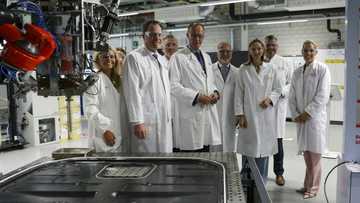AI has bright future in Latin America, despite training deficit: regional Google chief

Source: AFP
AI has a bright future in Latin America but is hamstrung by a huge training shortage, one of Google's top regional executives told AFP in an interview Thursday.
Speaking to AFP in Mexico, Google Latin America's vice-president Adriana Norena said rates of AI adoption in Latin America were "close to the United States...and the same as Europe."
But the "lack of training, of people ready to work with AI" was an obstacle to growth, she said.
"We have a major talent shortage," she said.
Surveys show that Latin Americans are relatively optimistic about the potential of AI.
But in Latin America, as in other regions, AI has been blamed for dramatically reducing the number of people accessing media company websites for information.
"We haven't observed that traffic (to media sites) has decreased; it has remained balanced," Norena said, arguing that AI acted like a filter, sending "more quality traffic" to media sites.
After a bumpy start to its AI journey Google has pulled off a dramatic turnaround to become a major player.
Google-parent Alphabet reported second-quarter profits of $28.2 billion, spurred largely by AI.
The AI race has prompted Google and other tech giants to build data centers housing huge servers to store the flood of data sucked up from billions of smartphones and other connected devices.
In Latin America, the centers' consumption of massive amounts of water has led to pushback.
Last year, an environmental court in Chile ordered Google to revise plans for a $200 million data center whose cooling system would consume seven billion liters (1.85 billion gallons) of water per year.
In Uruguay the company was also forced to revise plans for a center that would have used 2.7 billion liters a year.
In both cases, the company agreed to more expensive air cooling technology, which dramatically reduces water use.
"Our goal is for them to be self-sustaining and emission-free very soon," Norena said.
Google and Agence France-Presse signed a five-year agreement in 2021 under which the search company agreed to pay AFP an undisclosed sum for content in Europe.
Source: AFP


